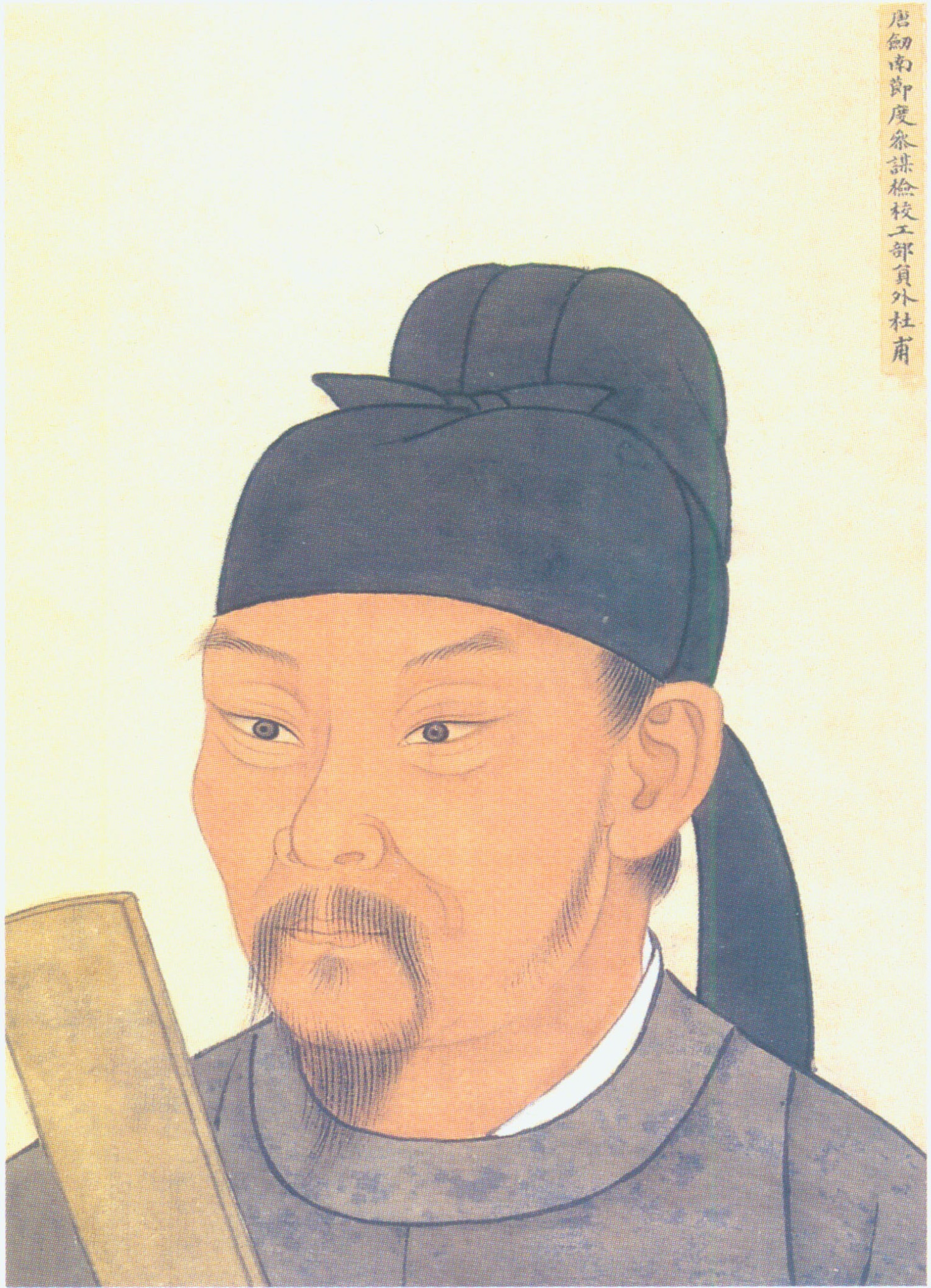“Al mondano successo è ostile l'arte somma e si fan belle i demoni dell'umano trapasso.”
http://www.tuttocina.it/editoria/rocc_dip.htm Du FU
Du Fu o Tu Fu è stato un poeta cinese, della dinastia Tang.
È conosciuto anche come Dù Shàolíng o Dù Gōngbù . Il suo nome di cortesia era Zǐ Měi .
Con Li Bai , è frequentemente denominato come il più grande poeta cinese. La sua maggiore ambizione era migliorare il suo paese diventando un funzionario civile di successo, ma fu sovrastato dalla situazione: la sua vita, come il Paese intero, fu devastata dalla Ribellione di An Lushan del 755, e gli ultimi quindici anni per lui furono un periodo di costante attività.
Sebbene fosse stato inizialmente impopolare, i suoi lavori influenzarono fortemente la cultura cinese e giapponese. Della sua produzione poetica, circa 1 500 poesie si son conservate nel corso dei secoli. Fu denominato il "Poeta Storiografo" o il "Poeta Saggio" dai critici cinesi, mentre la sua opera letteraria gli permise di essere presentato ai lettori occidentali come «il Virgilio, l'Orazio, lo Shakespeare, il Milton, il Burns, il Wordsworth, il Béranger, l'Hugo o il Baudelaire cinese».Trentanove delle sue poesie sono state inserite nell'antologia Trecento poesie Tang, stilata nel 1763 da Sun Zhu .
Wikipedia

“Al mondano successo è ostile l'arte somma e si fan belle i demoni dell'umano trapasso.”
http://www.tuttocina.it/editoria/rocc_dip.htm Du FU
“The good rain knows its season.”
Origine: Kim Cheng Boey, Between Stations: Essays (2009), p. 102
Contesto: Spring Night, Delighting in Rain (A translation by Burton Watson)
The good rain knows when to fall,
stirring new growth the moment spring arrives.
Wind-borne, it steals softly into the night,
nourishing, enriching, delicate, and soundless.
Country paths black as the clouds above them;
on a river boat a lone torch flares.
Come dawn we'll see a landscape moist and pink,
blossoms heavy over the City of Brocade.
"Moonlit Night" https://allpoetry.com/Moonlit-Night (trans. David Lunde)
"The Winding River", as translated by Rewi Alley in Du Fu: Selected Poems (1962), p. 54
As quoted in Lin Yutang's The Vermilion Gate (1914)
"Clear After Rain" (雨晴), as translated by Kenneth Rexroth in One Hundred Poems from the Chinese (1971), p. 16
"Snow Storm" (对雪), as translated by Kenneth Rexroth in One Hundred Poems from the Chinese (1971), p. 6
"Welcome Rain in a Spring Night" (《春夜喜雨》), as translated by Ying Sun http://www.musicated.com/syh/tangpoems.htm (2008)
“I'm empty, here at the edge of the sky.”
"Poem on Night" (trans. Jan W. Walls), in Sunflower Splendor: Three Thousand Years of Chinese Poetry, eds. Wu-chi Liu and Irving Yucheng Lo (1975), p. 139
"Spending the Night in a Tower by the River" (trans. Stephen Owen)
"The River by Our Village", as translated by Rewi Alley in Du Fu: Selected Poems (1962), p. 100
"A Quatrain" (trans. Jerome P. Seaton), in Sunflower Splendor: Three Thousand Years of Chinese Poetry, eds. Wu-chi Liu and Irving Yucheng Lo (1975), p. 142
“The nation is ruined, but mountains and rivers remain.”
"Spring View" (trans. Gary Snyder), written in 755.
Variant translation (by David Hinton): The nation falls into ruins; rivers and mountains continue.
"To My Retired Friend Wei" (Chinese: 贈衛八處士) in: University of Virginia's 300 Tang Poems http://etext.virginia.edu/chinese/frame.htm at etext.virginia.edu